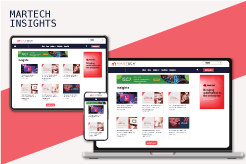Opera has introduced a groundbreaking shift in web browsing with the upcoming public launch of Opera Neon, the first “agentic” browser designed to go beyond traditional passive web navigation. Unlike conventional browsers that wait for user input, Opera Neon proactively understands user goals and autonomously performs complex, multi-step online tasks. This marks a major evolution in human-computer interaction, addressing long-standing inefficiencies where users had to manually navigate multiple tabs, copy-paste information, and juggle apps to complete workflows.
Opera Neon brings together advanced AI capabilities within the browser itself, enabling it to interpret webpage structures, reason through processes, and execute actions securely and privately on the user’s device. For example, in a scenario common to IT project management, a user can instruct the browser to check a Jira board for critical issues, cross-reference updates in Slack, analyze user feedback from a support portal, and update a Google Docs report. Opera Neon autonomously authenticates and navigates these platforms, synthesizes diverse data sources, identifies risks, and generates a comprehensive status update transforming what previously took an hour of manual effort into a simple command.
Marketing Technology Insights: Ad Overload Strikes Southeast Asia, 2 in 3 of Consumers Ignore Repetitive Ads
The browser offers three core AI functions: Chat, Do, and Make. “Chat” functions as a conversational assistant that can search the web and provide contextual information. “Do” automates routine online tasks such as form filling, bookings, and purchases conducting these locally to maintain privacy. “Make” introduces generative AI capabilities that create websites, reports, code, or visual assets, continuing work asynchronously on cloud virtual machines even when offline.
Opera’s vision aims to reclaim significant productivity losses by automating up to 30% of work hours spent on fragmented digital errands. By evolving browsers from passive tools into proactive collaborators, Opera Neon promises substantial efficiency gains and a redefinition of how users interact with the web. This agentic browsing concept builds on Opera’s AI integration lineage, including features launched in 2023 and culminates in Neon, which began limited releases in May 2025.
Marketing Technology Insights: Sprout Social Acquires NewsWhip, Accelerates AI Roadmap
Krystian Kolondra, Opera’s EVP, describes this transformation as shifting from a “page viewer into a task executor” where the browser “starts working for you, while you do something else.” With Neon, Opera is set to pioneer a future where browsers not only deliver information but complete the user’s intended workflows intelligently and autonomously, heralding a new era in digital productivity and user experience.
Marketing Technology Insights: beMarketing Joins Nexstar as a Strategic Partner to Deliver Marketing Solutions
For media inquiries, you can write to our MarTech Newsroom at sudipto@intentamplify.com



